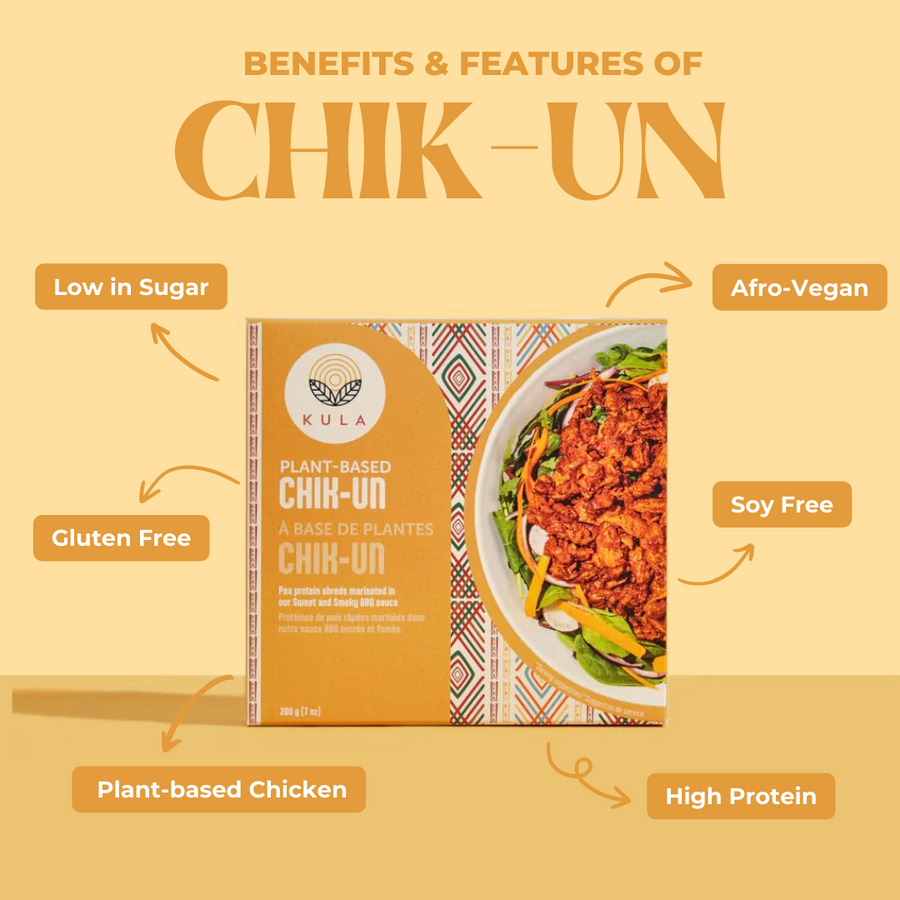5 Creative Plant Based Chicken Dishes That Go Beyond the Basics
All About Healthy And Balanced Food: Advantages of Taking On Plant Based Choices
The discussion surrounding plant-based diet plans has obtained significant focus in the last few years. Lots of people are discovering the possible wellness benefits, nutritional benefits, and environmental effects connected with these dietary options. As people come to be extra knowledgeable about their food's influence on health and sustainability, concerns occur about the functionalities of adopting such a way of living. What certain modifications can one expect, and how might these selections improve not just individual health but likewise the planet's future?
Understanding Plant-Based Diet Plans
Although many individuals associate plant-based diets generally with vegetarianism or veganism, these diet plans can include a wide variety of consuming patterns that prioritize entire, minimally refined plant foods. Such diet plans frequently include fruits, veggies, whole grains, seeds, vegetables, and nuts, while getting rid of or limiting animal items. This versatility enables people to tailor their dietary choices according to personal preferences and dietary needs. Some may embrace a primarily plant-based diet regimen while still periodically consuming meat or dairy, commonly described as a flexitarian approach. The focus continues to be on including even more plant foods, which can cause a diverse selection of flavors and meals. Recognizing these different analyses of plant-based consuming is crucial for valuing its accessibility and charm in modern food culture.
Health Conveniences of Plant-Based Foods
The health and wellness advantages of plant-based foods are considerable, supplying a nutrient density advantage that supports overall wellness. Study suggests that these foods can improve heart wellness and play a necessary role in effective weight management. By including extra plant-based options, individuals may improve their nutritional selections and advertise long-lasting health.
Nutrient Thickness Advantage
Nutrient density plays an essential function in the wellness benefits of plant-based foods, making them a compelling selection for those seeking a well balanced diet regimen. Plant-based foods, such as fruits, veggies, vegetables, nuts, and entire grains, are typically rich in vital vitamins, minerals, and anti-oxidants while being lower in calories. This high nutrient thickness enables people to eat less calories while still fulfilling their nutritional demands. Additionally, these foods are packed with dietary fiber, promoting digestive health and assisting in weight administration. By integrating nutrient-dense plant-based options, consumers can improve their general health, support their immune systems, and reduce the threat of persistent illness. Inevitably, the nutrient thickness of plant-based foods underscores their importance in a health-conscious way of life.
Heart Wellness Enhancement

Weight Management Support
In enhancement to promoting heart health, a plant-based diet plan can significantly assist in weight monitoring. This nutritional technique highlights whole foods such as fruits, veggies, beans, nuts, and entire grains, which are generally reduced in calories and higher in fiber contrasted to animal-based items. The high fiber content assists increase satiation, reducing total calorie consumption. Plant-based diets are frequently abundant in crucial nutrients while reduced in unhealthy fats, making it simpler to keep a healthy and balanced weight. Research indicates that people who take on a plant-based way of living often tend to have reduced body mass indexes (BMIs) and experience even more successful weight loss contrasted to those who take in meat-heavy diets. Accepting plant-based alternatives is a critical selection for efficient weight administration.
Nutritional Worth of Plant-Based Active Ingredients
Plant-based ingredients are rich in important nutrients, offering a diverse variety of vitamins, minerals, and antioxidants that add to general wellness. A contrast of healthy protein resources exposes that while pet products are often watched as premium, lots of plant-based choices provide adequate you can try this out protein and other advantageous substances. Recognizing the nutritional worth of these ingredients can aid individuals make educated dietary choices.
Important Nutrients in Plants
Nutrient-rich ingredients located in plants provide a diverse variety of necessary minerals and vitamins that contribute considerably to overall health. These ingredients are rich in vitamins A, C, and K, which support immune function, vision, and blood clot, respectively. Additionally, plants give vital minerals such as potassium, magnesium, and calcium, vital for heart health and wellness, muscular tissue feature, and bone toughness. The existence of fiber in plant-based foods help food digestion and advertises a healthy and balanced intestine microbiome. Anti-oxidants, located generously in vegetables and fruits, assistance combat oxidative stress and anxiety and minimize swelling. Numerous plant foods are low in calories yet high in nutrients, making them a superb choice for those looking for to keep a healthy and balanced weight while guaranteeing optimal nutrient consumption.

Contrasting Healthy Protein Resources
Healthy protein resources differ substantially in their dietary accounts, with plant-based active ingredients providing special advantages. Unlike animal proteins, which usually consist of hydrogenated fats and cholesterol, plant proteins have a tendency to be lower in these undesirable components. Legumes, nuts, seeds, and whole grains are rich in essential amino acids, fiber, vitamins, and minerals. Lentils provide high protein material together with significant iron and folate, while quinoa is a total healthy protein, supplying all nine essential amino acids. Additionally, plant-based proteins are often accompanied by anti-oxidants and phytochemicals that sustain total wellness. The change to plant-based healthy protein sources not only improves nutritional intake however additionally lines up with lasting nutritional practices, minimizing ecological effect and promoting long-lasting health and wellness advantages.
Ecological Influence of Plant-Based Eating
As recognition of environment adjustment expands, several individuals are exploring lasting nutritional selections that can significantly decrease their ecological impact. Plant-based eating has actually emerged as a considerable contributor to reducing greenhouse gas emissions, which are largely connected with livestock production. The cultivation of fruits, veggies, vegetables, and grains generally requires fewer resources, such as water and land, contrasted to animal farming. Additionally, plant-based diet plans can result in reduced logging, as much less land is required for grazing livestock or growing pet feed. By changing in the direction of plant-based alternatives, customers can support biodiversity and promote healthier ecological communities. On the whole, accepting plant-based eating not only benefits personal health however also represents a vital action towards ecological sustainability and preservation efforts.
Conquering Common Misconceptions
While numerous people acknowledge the advantages of a plant-based diet, numerous mistaken beliefs typically deter them from completely embracing this way of living. A typical idea is that plant-based diet regimens do not have adequate protein; nevertheless, numerous plant resources, such as beans, nuts, and tofu, give sufficient protein. In addition, some presume that this diet is costly, when in fact, staples like beans, rice, and seasonal vegetables can be fairly budget friendly. An additional misconception is that plant-based consuming is extremely restrictive, whereas it actually supplies a diverse variety of foods and flavors. Finally, many fret that a plant-based diet plan might cause shortages, yet with proper preparation, people can acquire all essential nutrients, including minerals and vitamins, while delighting in a variety of tasty dishes.
Tips for Transitioning to a Plant-Based Way of life
Making the shift to a plant-based lifestyle can be an improving experience, though it commonly calls for some advice to browse the preliminary changes. Individuals are urged to begin progressively, integrating even more fruits, vegetables, legumes, and entire grains right into their dishes while minimizing meat and dairy products intake. Dish preparation is important; preparing an once a week menu can help alleviate the adjustment and prevent last-minute unhealthy choices. Discovering cooking methods and brand-new recipes can likewise preserve and boost the experience excitement about plant-based consuming. Additionally, signing up with assistance teams or areas can provide motivation and share important tips. Remaining notified regarding nutrition assurances well balanced meals, avoiding shortages while cultivating a healthy and balanced, enjoyable plant-based way of living.

Delicious Plant-Based Dish Concepts
Checking out tasty plant-based dish ideas can influence people to embrace an extra nutritious diet. One prominent option is a passionate quinoa salad, including cherry tomatoes, cucumber, and a vibrant lemon-tahini dressing. An additional fave is a tasty lentil stew, packed with carrots, celery, and great smelling herbs, excellent for a soothing supper. For breakfast, overnight oats made with almond milk, chia seeds, and covered with fresh berries give a healthy begin to the day. In addition, a lively vegetable stir-fry with tofu and a range have a peek at these guys of vibrant veggies can be a fast yet satisfying dish. Luscious avocado toast on whole-grain bread, sprinkled with flavors and seeds, uses a straightforward yet delicious treat. These dishes display the variety and richness of plant-based eating.

Regularly Asked Questions
Can a Plant-Based Diet Provide Sufficient Protein?
The inquiry of whether a plant-based diet regimen can supply adequate healthy protein prevails. Numerous sources, consisting of vegetables, nuts, seeds, and entire grains, can meet healthy protein requires efficiently, sustaining a nourishing and balanced diet for people.
Are Plant-Based Diet Regimens Ideal for Kid?
The suitability of plant-based diets for children relies on careful preparation. Sufficient nutrients must be ensured, consisting of proteins, vitamins, and minerals. With proper guidance, such diets can sustain healthy development Related Site and advancement in kids.
Just how Do I Eat in restaurants on a Plant-Based Diet plan?
Dining out on a plant-based diet plan includes looking for restaurants with diverse menus, asking for modifications, and exploring vegan-friendly options. Planning in advance and communicating nutritional preferences can boost the dining experience while preserving dietary options.
What Prevail Allergens in Plant-Based Foods?
Usual allergens in plant-based foods include soy, gluten, nuts, and seeds - Plant Based Beef. Individuals following a plant-based diet regimen should understand these irritants and check out labels meticulously to avoid damaging responses and guarantee secure usage
Can Plant-Based Diets Aid With Fat Burning?
Study suggests that embracing a plant-based diet may facilitate weight reduction because of its generally reduced calorie density and higher fiber web content. This mix can boost satiety, assisting individuals handle their caloric intake effectively. Several individuals associate plant-based diet plans mostly with vegetarianism or veganism, these diet regimens can include a wide array of consuming patterns that prioritize entire, minimally processed plant foods. Nutrient thickness plays a crucial duty in the wellness advantages of plant-based foods, making them a compelling selection for those seeking a balanced diet plan. Plant-based diet regimens have been revealed to noticeably boost heart health and wellness, as they usually contain elements that support cardio function. In enhancement to advertising heart health, a plant-based diet can significantly assist in weight management. A typical idea is that plant-based diets lack sufficient protein; however, numerous plant resources, such as beans, nuts, and tofu, give adequate healthy protein.